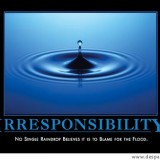Pension benefits not deducted from wrongful dismissal damages.
In a decision released in 2013, IBM Canada Limited v. Waterman (“Waterman”), the Supreme Court of Canada decided that an employee was entitled to keep his pension benefits as well as the full damages awarded to him for wrongful dismissal over the same period of time. Background After 42 years of service, and at the age of 65, Richard Waterman (“Mr. Waterman”) was terminated by IBM Canada Limited (“IBM”). He was only provided with 2 months notice. At the time of termination Mr. Waterman was entitled to a full pension pursuant to IBM’s defined benefit pension plan. Over the course of his...
read morePunitive damages explained.
Punitive damages are particularly prevalent in the USA where they are often left to the discretion of a group of citizens, a jury, who may impose them when they determine that a defendant’s conduct has been uncivilized or to deter other from acting in such an underhanded way, to improve, generally, law and order, or simply to reward the plaintiff for his financial risks in litigating and enforcing the law. Where awarded, they are an exception to the rule that damages are to compensate not to punish. The exact threshold of punitive damages varies from jurisdiction to jurisdiction. In...
read moreAggravated damages explained.
The Supreme Court of Canada decision in Fidler vs. Sun Life, released on June 29, 2006, clarified the legal principles for awarding aggravated damages in Canada. Facts of the Case Ms. Fidler was a bank receptionist who, at the age of 36, became ill and was eventually diagnosed with chronic fatigue syndrome and fibromyalgia. She began receiving LTD benefits from Sun Life in 1991. The benefits were terminated in 1998, based to a large extent on video surveillance which Sun Life felt detailed activities inconsistent with her claim that she was incapable of performing light or sedentary work....
read moreStructured settlements explained.
In larger personal injury claims, a structured settlement may be available to you. You must negotiate the structured settlement before judgment or during the settlement process. After judgment, the option of a structured settlement is no longer available. A structured settlement, in simple terms, is an annuity purchased at the time of the settlement, which provides a stream of income over a certain period of time. The significant advantage to a structured settlement is that you receive a certain stream of income tax-free over a given period of time. Also, the principal of the investment and...
read moreCan social media activity impact my disability claim?
In recent times, social media websites like “Facebook”, “Blogger”, and “Myspace” and “Twitter” have become an excellent source for insurance companies to investigate claimants. When you post something on these social media websites, the world can look at what you have posted. For example, you may mention, on a social media site that you went on a trip, hiked a mountain, went on a skiing trip, enjoyed socializing with your friends, etc. In so doing, the insurer will likely find out this information and use it against you. Imagine if the insurance company downloads some...
read moreWhen should I settle my ICBC claim?
The question of when to settle your ICBC claim is one of the biggest decision you will make. There is no easy answer and will depend largely on the facts involved in your ICBC claim. ICBC will often attempt to settle your claim very soon after the accident. It is to ICBC’s benefit to close files early and save administrative costs. Also, the earlier you settle the ICBC claim, the less ICBC generally pays. Once you settle your claim you will not be entitled to any further compensation from ICBC. This is because, as part of your settlement, ICBC will ask that you to sign a final Release that...
read more









